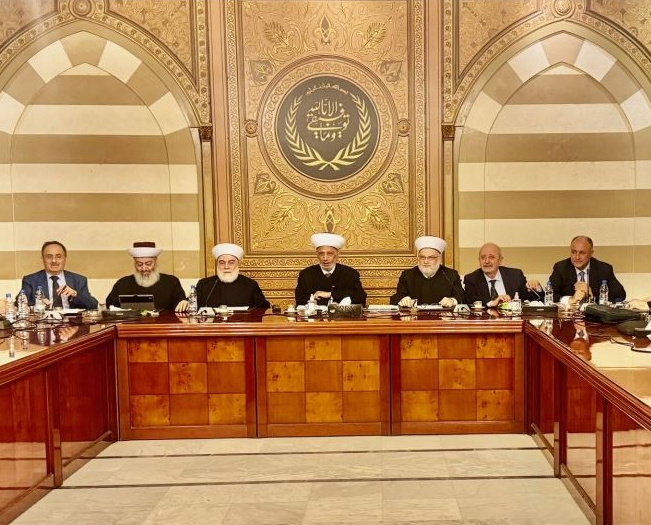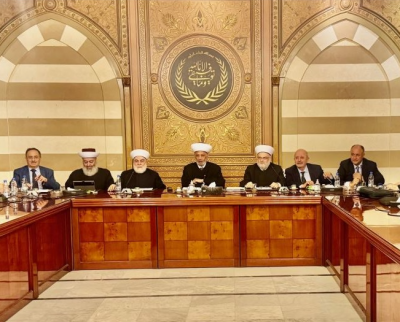The Higher Islamic Sharia Council emphasized the importance of establishing an atmosphere of dialogue, convergence, and understanding among all political components to elect a president for the republic, urging an end to political disputes, rigidity in positions, bickering, conflicts, distancing, division, and fragmentation, for fear that Lebanon may slip into the unknown, leading to an explosion and collapse.
The council held a meeting chaired by the Grand Mufti of the Republic, Sheikh Abdul Latif Derian, at the Dar al-Fatwa, discussing Islamic, national, and Arab affairs. A statement was issued, read by council member Sheikh Fayyad Saif, which included the following text: "The session began with the recitation of Al-Fatiha for the soul of the martyred President Rashid Karami on the anniversary of his martyrdom. May God have mercy on him, recalling his qualities as a statesman and a dialogue advocate who cared for Lebanon's revival and its institutions amid the bloody conflicts in the Lebanese arena, and for the souls of the martyrs who fell in Palestine and on Lebanese and Arab soil."
The Sharia Council confirmed the need to foster an atmosphere of dialogue and unity among all political components to elect a president for the republic, urging abandonment of political disputes and rigidity in positions, along with conflicts and division, fearing Lebanon may descend into the unknown and face potential explosion and collapse.
The Sharia Council urged deputies to fulfill their national and constitutional duty by expediting the election of a unifying president to avoid a persistent presidential vacuum that remains hostage to delays linked to regional developments. It recognized that Lebanon is experiencing a constitutional crisis through proposals for federalism, division, and political system alterations, and reaffirmed that our only choice is national unity and the implementation of the Taif Agreement, which remains a stronghold for Lebanon's Arab identity and adherence to the constitution.
The council called on political parties to adopt a rational national discourse, free from sectarian, religious, and regional slogans, and called for cooperation, cohesion, and unconditional dialogue, which is essential to achieve the consensus needed for electing a president and rescuing Lebanon from the paralysis of its institutions, enabling it to bolster its security, stability, and sovereignty, which are daily threatened by violations from the Israeli enemy, that blatantly disregards UN resolutions, particularly Resolution 1701.
The council appealed to the state to assume its responsibilities by developing a practical plan to rescue Lebanon from its economic, living, and health crises, the emigration of youth abroad, and rampant unemployment, as well as to address the daily life issues faced by citizens.
The Sharia Council expressed its astonishment at the inhumane campaign waged by some against the Syrian refugees in Lebanon, appreciating the efforts and endeavors of the government and its security apparatuses in implementing the parliament's recommendation for refugees to adhere to the existing laws and regulations. This necessitates that the relevant ministries perform their role within a framework of order and law to rectify the political oppositions among the Lebanese political factions.
The Sharia Council affirmed that the measures recently taken by the International Court of Justice represent a victory for justice in supporting the Palestinian cause. The council regarded the atrocities committed by the Israeli entity, including genocide and classified war crimes in Gaza and the occupied Palestinian territories, as violations of international and humanitarian law, which tarnish the credibility of international decisions. It urged the international community, the Security Council, and major states to work to halt military operations and put an end to the crimes perpetrated against the Palestinian people and Lebanon, and to allow the provision of aid to Gaza.




